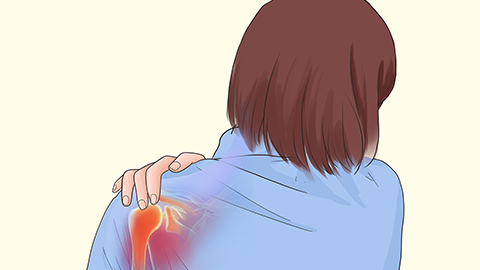What could be the reason for left back pain that occurs with movement upon waking up?
Generally, waking up with pain in the left back upon movement may be caused by poor sleeping posture, nighttime exposure to cold, back myofascial inflammation, cervical spondylosis, or thoracic facet joint dysfunction. It is recommended to seek medical attention promptly to determine the underlying cause and receive appropriate treatment under a doctor's guidance. Specific analyses are as follows:

1. Poor sleeping posture: Prolonged lying on the left side or in a prone position during sleep continuously compresses the muscles of the left back, leading to impaired local blood circulation. Pain may occur when moving upon waking. Adjusting sleeping posture to avoid prolonged pressure on the left back, gently moving the left back after waking, and combining gentle massage can help improve blood circulation and relieve pain.
2. Nighttime exposure to cold: When the left back is exposed during sleep and subjected to cold stimulation, localized muscle spasms may occur, causing pain upon movement in the morning. Keeping the body warm at night and avoiding exposure of the left back can help prevent this. Applying heat therapy to the affected area can relax the muscles and reduce discomfort caused by spasms.
3. Back myofasciitis: Chronic fatigue or repeated strain on the back can easily lead to back myofascial inflammation. Inflammatory irritation causes pain in the left back, which worsens with activity. Patients may follow medical advice to use medications such as diclofenac sodium sustained-release tablets, celecoxib capsules, or ibuprofen sustained-release capsules to alleviate pain.
4. Cervical spondylosis: Herniated cervical discs may compress the left nerve root, causing radiating pain to the left back. Upon waking and moving, traction on the nerve root intensifies the pain. Patients may take medications such as mecobalamin tablets, vitamin B1 tablets, or eperisone hydrochloride tablets under medical supervision to nourish nerves and relax muscles.
5. Thoracic facet joint dysfunction: Misalignment of thoracic facet joints due to improper posture or external forces can irritate surrounding tissues, resulting in pain when moving the left back. Patients should undergo thoracic facet joint reduction performed by a qualified physician to restore normal joint alignment and relieve pain. After the procedure, avoid strenuous activities to reduce the risk of recurrent joint misalignment.
In daily life, it is important to maintain proper sitting and standing postures and avoid prolonged head-down positions or bending over. Choose a mattress with moderate firmness to provide adequate support for the back. Regularly perform stretching exercises to strengthen back muscles and reduce the likelihood of pain episodes.




